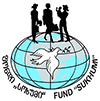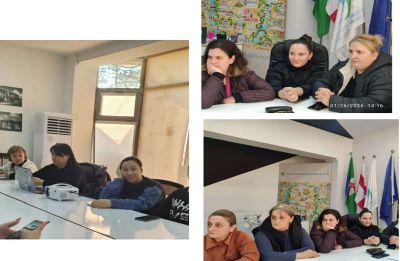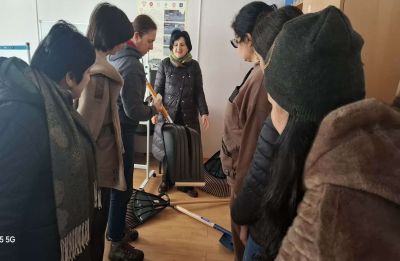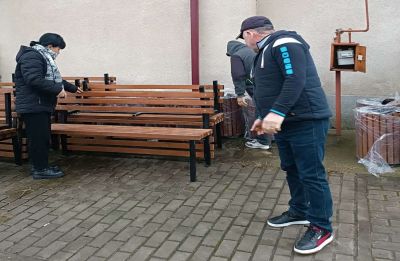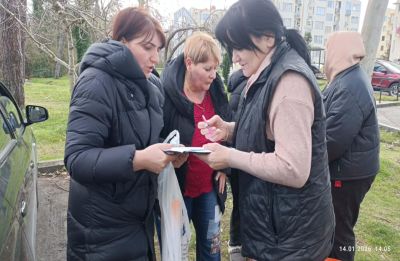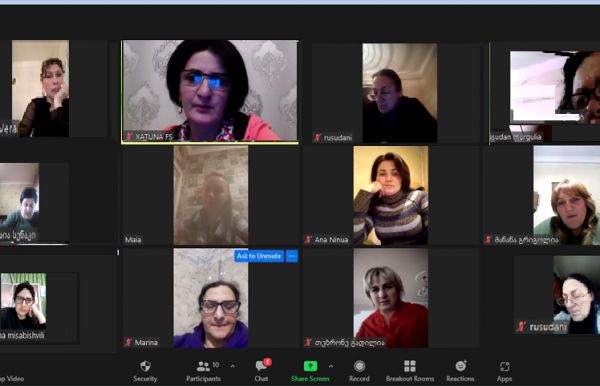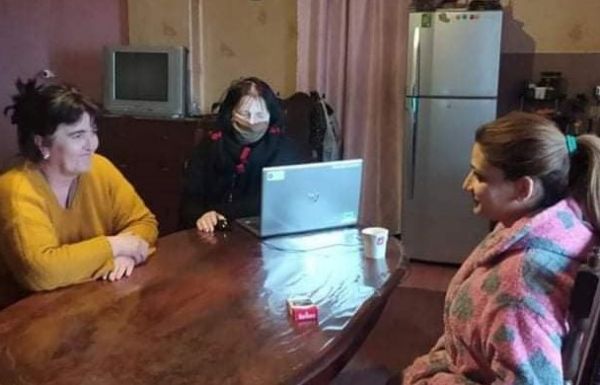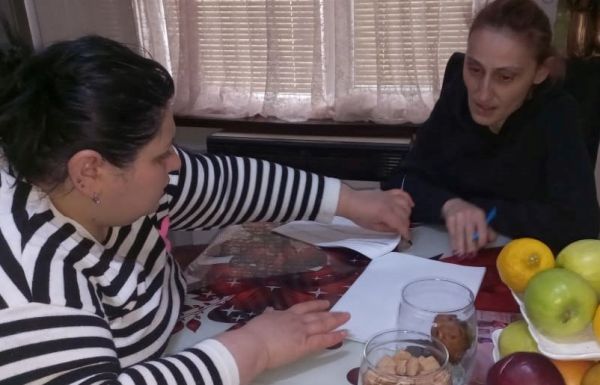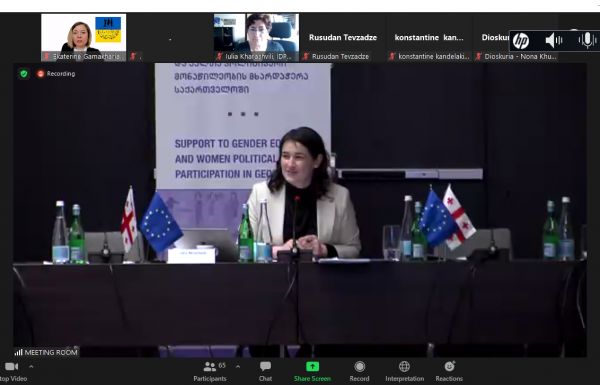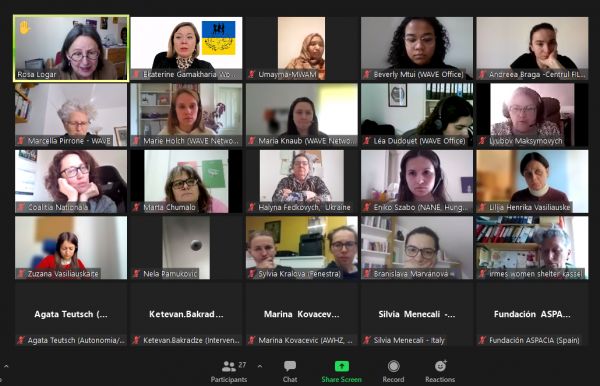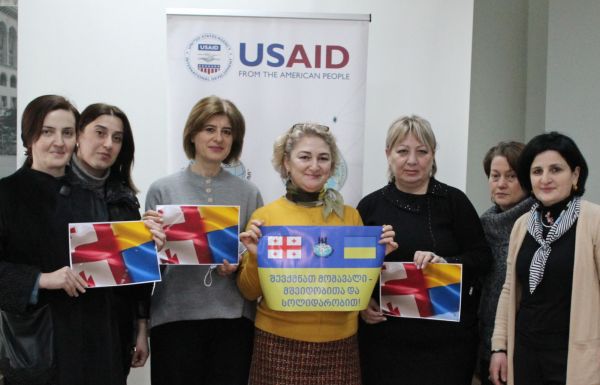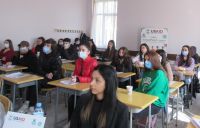A working meeting was held with members of the Initiative Group of IDP Women in Senaki. In the first part of the meeting, the participants talked about how they conducted the survey, which contributed to the successful completion of the process. In the second part, they got acquainted with the plan for April. It was noted that a cycle of trainings will be held with the members of the group. They were provided with information about what topics will be covered during the trainings.
According to the participants, their awareness, competence, civic activism will increase through the training - all this will contribute to initiating the needs of IDPs at the local level.
The project is implemented with the support
of the UN Women organization
Women Fund "Sukhumi" conducted a survey to identify the needs of IDP women and girls. Members of the IDP Women Initiative Group of Tskaltubo were involved in the process.
40 questionnaires were filled in an electronic format. Questionnaires have already been reviewed to clearly see the needs and priorities that exist in IDP collective centers. All this will form the basis for creating a social profile of these centers.
The project is implemented with the support
of the UN Women organization
A survey was conducted and questionnaires were filled out In the IDP settlement. Khoni IDP Women Initiative Group was actively involved in the process.
In order to fully reflect the existing problems, meetings were held in the village, the completed questionnaires were discussed, additional information was received, and the population clearly saw which problems were prior.
A number of issues were identified on which it is necessary to put emphasis and direct the advocacy strategy of the Initiative Group - for example, the problem of stray dogs, the problem of rehabilitation of entrances and external facades, etc.
Проект осуществляется при поддержке
Женской организации ООН
The Delegation of the European Union to Georgia hosted a high-level conference on "Women's participation in politics".
The meeting was held in hybrid mode and was attended by women in politics, Advisor to the Prime Minister on Human Rights, Chairman of the Parliamentary Gender Equality Council, activists of civil society organizations, experts, representatives of international organizations, and 12 embassies accredited in Georgia.
Ekaterine Gamakharia, a representative of the Women's Fund "Sukhumi", though online format, emphasized that political empowerment and participation of such marginalized groups as conflict-affected women, IDPs, and people living in remote regions are not paid sufficient attention, and the need to promote the political participation of this category of women is essential.
The WAVE Network, which brings together more than 150 NGOs working on issues of violence against women, organized a meeting to support and solidarity with Ukrainian women and children. The purpose of the meeting was to receive information from our Ukrainian colleagues on the urgent needs of women and children as a result of the war in Ukraine and to exchange information on existing support initiatives from partners. Network members discussed future strategies for providing more effective assistance and support.
Eka Gamakharia, a representative of the Women's Fund "Sukhumi", shared with her colleagues the specific initiatives that are being implemented by the organization to support the population of Ukraine and the Ukrainian refugees in Georgia - providing financial resources and humanitarian aid to the population in occupied Melitopol. Assistance in purchasing necessary items and products for Ukrainian refugees in Kutaisi, paying temporary rent, and employment. Also, offer a consultation with a psychologist.
"Forms of Civic Involvement at the Local Level and Ensuring Women's Participation." - Training on this topic was held with members of Tskaltubo Women Initiative Group.
Participants discussed the legal aspects of forms of civic engagement. The role and competence of self-government, the responsibility and benefits of citizens in this process.
Specific stories were analyzed, why civic engagement is important. What are the stages, what does this process mean for the self-government, for individual citizens.
Role-playing games,
Presentations,
Active discussion,
Screening of short films...
This is how the training with Zugdidi Youth Initiative Group on "Stereotypes and Tolerance" was held.
Such was the reaction of the participants:
"Today you have presented very important topics, in very simple, understandable language, we have learned what tolerance is, how important it is in relationships and what are stereotypes, stereotypical approaches".
The topic of solidarity is particularly important today.
This issue was discussed at the meeting of Zugdidi Women initiative group.
The women joined the action of solidarity to Ukraine
The project is implemented with the support of the USAID
The meeting of March 21 focused on the origins of International Women's Day and the topic of solidarity.
Participants expressed their positions on the current situation, they made small reports and presentations.
The project is implemented with the support of the USAID
